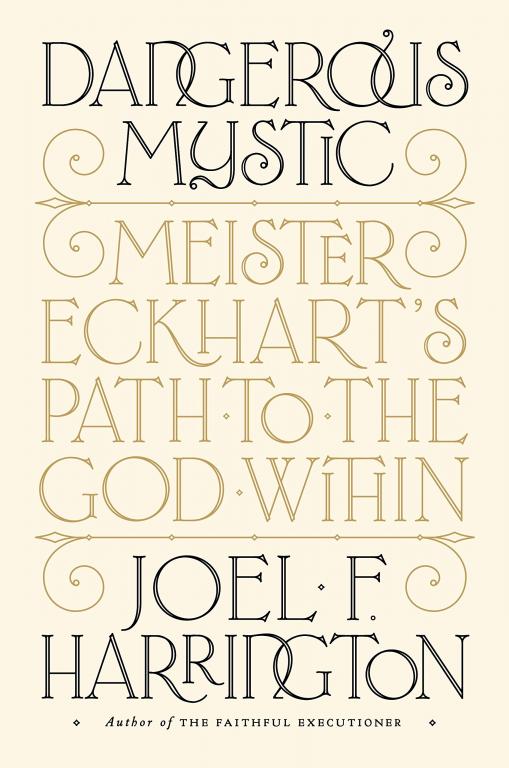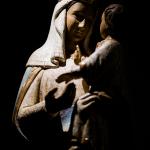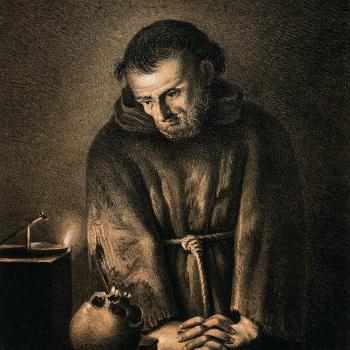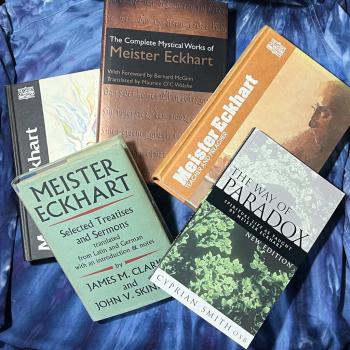 Meister Eckhart is one of the most renowned of Christian mystics: a medieval philosopher who could have gone down in history as an equal to Augustine or Aquinas — but whose career (and legacy) as a theologian was forever tarnished by accusations of heresy at the end of his life.
Meister Eckhart is one of the most renowned of Christian mystics: a medieval philosopher who could have gone down in history as an equal to Augustine or Aquinas — but whose career (and legacy) as a theologian was forever tarnished by accusations of heresy at the end of his life.
His many sermons and treatises (in both Latin and Middle High German) show not only a brilliant mind, but a daring and visionary understanding of spirituality and the call of the Christian life — not just to salvation, not just to sanctification or holiness, but truly to deification: union with God.
But philosopher that he is, Eckhart is not always an easy read. Likewise, many scholars who have written about him, and have commented on his writings, are not always that much more accessible (compounding this problem: not all Eckhart scholars are necessarily happy with his reputation as a mystic — some just want to preserve his legacy as a philosopher or a theologian).
Julian of Norwich, Teresa of Ávila, even John of the Cross — many great mystics are suprisingly easy to read, particularly when presented in scholarly English translations. But for many, Eckhart reminds something of a puzzle.
Which is why I am so excited about a recently published book about Meister Eckhart, Joel F. Harrington’s Dangerous Mystic: Meister Eckhart’s Path to the God Within. While this is a “popular” (in contrast to “academic”) introduction to the life and teachings of Eckhart, it is nevertheless a thoughtful and carefully-researched biography.
Harrington is a professor of history at Vanderbilt University, and the author of several other books about German history, including The Faithful Executioner and The Unwanted Child. That his primary field of expertise is history, rather than philosophy or theology, serves this book well — Harrington is a gifted storyteller and has made Eckhart (and his world) come alive. He carefully describes the Germany of the late thirteenth and early fourteenth century, describing the social, political, educational, and ecclesiastical cultures in which Eckhart lived and worked.
By giving his readers a glimpse into Eckhart’s world, the book offers a nuanced and vivid portrait of the man — and of the ideas, both philosophical and theological, that inspired his work as a writer, teacher, and preacher. Perhaps best of all, the author is not shy about Eckhart’s reputation — both during his lifetime and since — as a mystic or spiritual master in the Christian world.
Eckhart was a Dominican friar — the same order that gave us luminaries like Albert the Great and Thomas Aquinas — and so Harrington deftly describes the spiritual and intellectual world of this mendicant “Order of Preachers.” He also points out how other religious communities of the day — including the controversial lay movements, the Beguines and Beghards, as well as the Franciscans, who were the heart-centered rival to the coolly intellectual Dominicans — all helped to shape the life and teachings of the Meister. Of course, the political dynamics of the day, involving aristocratic authorities who were not always favorably disposed to the speculative teachings of figures like Eckhart — also played their part, especially in the tragic end of the great mystic’s career.
Harrington also offers an interesting perspective on Eckhart’s legacy — tarnished by accusations of heresy (even though he was never formally declared a heretic, the accusation was enough to damage his reputation literally for centuries), but gradually overcoming that setback to emerge as a great figure of his age, even if still under-appreciated by the church (or public) at large.
Dangerous Mystic is a wonderful book. I’m sure, like any other popular treatment of a figure who is commonly studied in the Ivory Tower, there doubtless will be scholars who will nitpick at this or that arcane issue in the book. But for me, reading the book simply as a contemplative Christian, I found nothing in it that set off alarm bells, and much to commend. This is clearly the book to start with for anyone who wants to learn about Meister Eckhart, especially from the perspective of what he has to say to contemplatives today.
Enjoy reading this blog?
Click here to become a patron.














